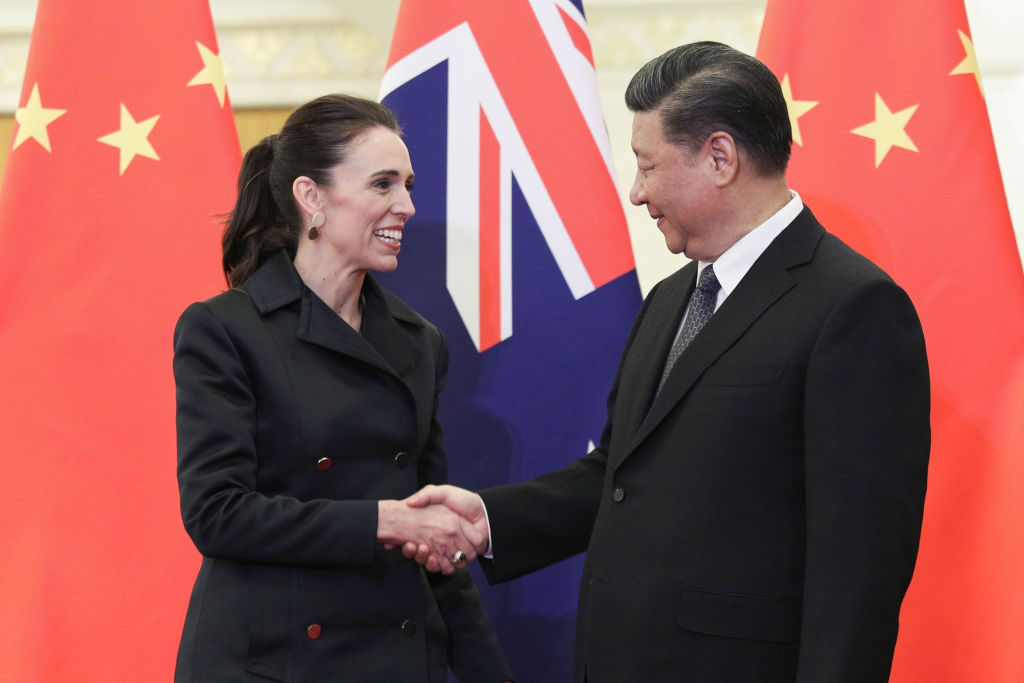It is becoming harder and harder to ignore China’s aggressive behaviour. As I say in the magazine this week, China wants to pick off its opponents. Only a unified western response can stop this, but all too often that has been lacking.
New Zealand was strikingly absent from the statement issued by 14 countries
When Beijing turned on Australia for suggesting that there should be an independent inquiry into the origins of the coronavirus, there was a shocking lack of solidarity from New Zealand. Wellington’s trade minister, while negotiating an upgrade to its trade deal with China, suggested Australia should ‘show respect’ to China. New Zealand now exports almost half its meat and wool to China. Revealingly, it also dropped out of a statement by the Five Eyes — the intelligence grouping that joins together the US, the UK, Canada, Australia and New Zealand — that was particularly critical of China’s behaviour in Hong Kong.
New Zealand was also strikingly absent from the statement issued by 14 countries — including Australia, the US, the UK, Canada, Japan and South Korea — this week following the World Health Organisation’s work in China. It expressed ‘concerns that the international expert study on the source of the Sars-CoV-2 virus was significantly delayed and lacked access to complete, original data and samples’.
There need to be structures to ensure a joint response in the face of Chinese intimidation. In a forthcoming paper for the China Research Group, one of the bodies sanctioned by Beijing, the American economist Robert D. Atkinson argues that what is needed is a Nato for trade. This would ensure a collective response to Chinese attempts to intimidate its members. Would China have slapped tariffs on Australian wine if it knew it would have brought a reaction from dozens of other countries?
The US, UK, EU and Canadian targeted sanctions on Chinese officials for the way the Uighur Muslims are being treated was an important first step in the West’s pushback against Beijing. There now needs to be action taken to prevent free societies from being economically bullied by China. Boris Johnson should use the G7 summit in Cornwall this June to put a plan for collective economic defence on the table.







Comments